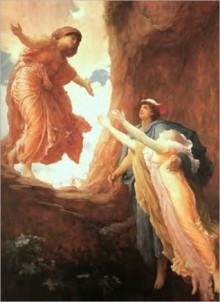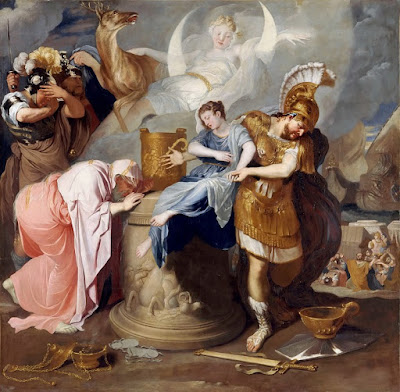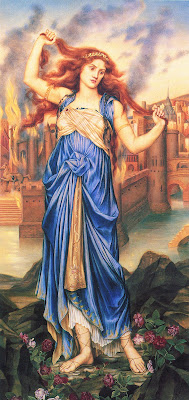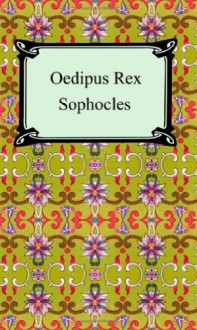
I actually quite like Aristophanes, not because he is a brilliant playwright, though since eleven of his works have survived 2500 years I really do not think that I am in a position to comment on his ability. Obviously there is a reason, and probably a good reason, not only why his plays have managed to survive, but that his plays managed to survive a somewhat puritan Dark Ages where pretty much anything that wasn't Christian was discarded. Okay, that is probably a bit too general since the Catholic Church didn't really begin banning books until after the Catholic Reformation (and despite my respect for my former Church History Lecturer, I still somewhat disagree with his assessment of the Catholic Reformation).
Aristophanes' comedies stand out in two ways: first of all they give as an insight into the common people of Athens of the 4th century, and also gives us an understanding, and some very good examples, of the vernacular language. It is the difference between reading a book written in proper English and a book that relies heavily upon a region's slang (such as Australia: for instance, the word <i>sook</i> and <i>prima-donna</i> mean the same thing, but in Australia we use the former, where as the latter is probably a more polite and correct usage). The second thing about Aristophanes' plays is that they are incredibly imaginative, and in some cases quite fantastic. Moreso, the plays are actually pretty funny and remains so despite the 2500 year gap and the language complications. Okay, a lot of the humour (such as the puns) are lost, however the Barrett translation of his works is still very good (and he even manages to use a rhyme scheme in places, noting that English is probably the only language, at least what I know of, that uses rhyme as a poetical form).
The Thesmophoriazusae is one of those interesting, and imaginative, plays that also gives us a bit of an insight into Classical Athens. Remember that the tragedies are written in a stylised language, and people do not, and have not, transacted like that. People in Elizabethan England did not talk to each other using blank verse and Shakespearian language. While the vernacular was no doubt a lot different to what it is now, they still used it. The only time such high form language would have been used would have been in diplomacy, and even then I can't imagine Queen Elizabeth and the King of France speaking to each other (or even writing to each other) in blank verse.
The play is set around a festival known as the Thesmophoria, which was a woman's only festival that lasted three days at a place known as the Pynx. Having read this play I have now learnt that the Pynx was the location of the assembly (I always thought it was the Areopagous, but that was the high court). Type Pynx into Google Images to get an idea of what it looked like, and I have also managed to locate it on the Google Maps image of Athens. It is located to the west of the Acropolis just to the southwest of the intersection of Dimitriou Aiginitou and Apostolou Pavlou. From what I can remember of Athens, there is a promenade that runs along the south side of the Acropolis, and then another path to the west heads uphill, past the Areopogaus, and then curves around to the north of the Acropolis (with a gate that leads to the Agora). Anyway, you do not take that path, but actually continue along the promenade to the west, and it will then curve to the north, but you should be able to find it (and if you don't ask somebody, they do tend to be quite helpful in Greece). Okay, that is enough of me showing off how well I know Athens after spending only a week there, so now onto the play.
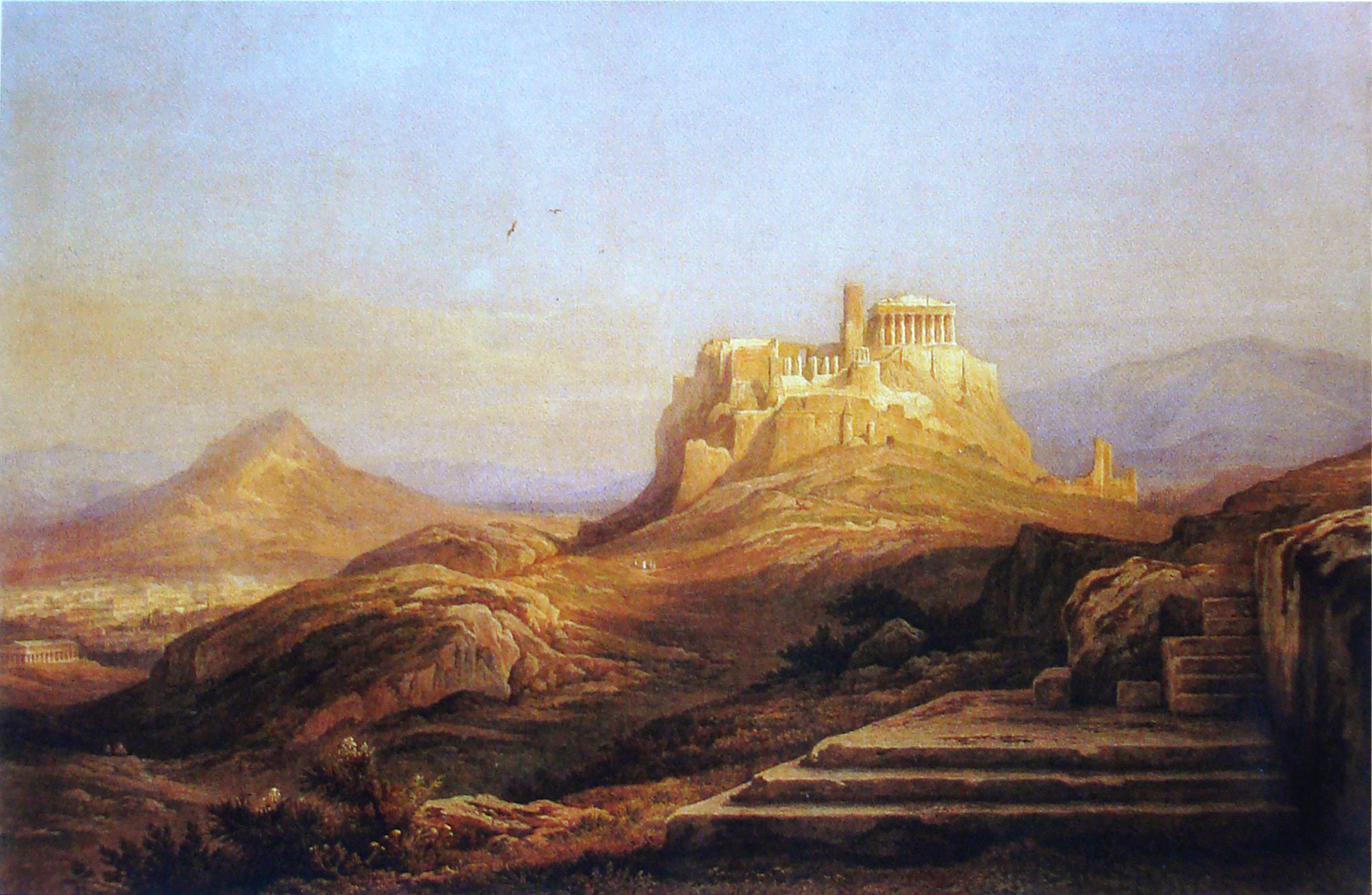
The play is about Euripides and how he learns that the women of Athens are upset about his portrayal of them, so he decides to sneak into the Thesmophoria in an attempt to convince the women that he was not all that bad. However, his plan involved a young Athenian who had yet grown a beard (all Athenian men had beards, some quite long at that) to disguise himself as a woman and sneak into the festival. However, this young Athenian didn't want anything to do with it so he gets his brother-in-law, the foul mouthed Mnesilochus, to do it instead. Obviously getting Mnesilochus to act like a woman was never going to work, and sure enough he ends up getting found out and tied to a stake to be executed. However Euripides comes in and convinces them (through a fine sounding argument) to release him.
This play is clearly about women and their role in Athenian society. It is not incredibly deep, but it is clear that the women, despite their lower status in the society, did have some freedom, and also the right to religious celebration (as is clear with the Thesmophoria). These women though are compared to two women from antiquity, namely the model wife that is Penelope, and Euripides' presentation of Helen. Sections of the play actually recite Euripides' Helen, and while I will not go into details of that play here, I will simply mention that the purpose behind Helen was to redeem her in the eyes of the Athenians. Euripides borrowed from a legend that had the Helen of Troy as nothing more than a mischievous phantom, and that the real Helen had been kidnapped by the king of Egypt and that was were she spent the war. In Euripides' mind, Helen was innocent of the charges laid against her.
This is why I find the play rather strange because Euripides is being accused of being anti-women, but it is quite clear from his writings that he is not. Of the plays that I have read, particularly the ones involving women, they are the tragic figures. Consider Medea, Hecabe, Helen, and Iphangenia. They were all innocent of any crimes, yet suffered simply because they were women. In fact, with regards to Medea, it is Jason that is considered to be the antagonist by tossing Medea out of his bed for a younger, more influential, woman.
However, the charges that Euripides (and in a way Aristophanes) is that the women of then modern Athens, were nothing like those women in Euripides' plays. In fact they came nowhere close to them in virtue. Remember, at this time Athens was in the middle of a very long and drawn out war, which means that a lot of the young men were off fighting leaving only the women, the children, and the elderly at home in Athens. It is suggested here, and it is the bait that Euripides uses to free Mnesilochus from the Thesmophoria, namely that while the cat is away then the mice are at play. Of course, you don't want anybody telling the husbands what their women were up to when they returned, and in a way this is a reflection of the Orestia, despite that play being written prior to the Peloponesian War.

 Log in with Facebook
Log in with Facebook 


